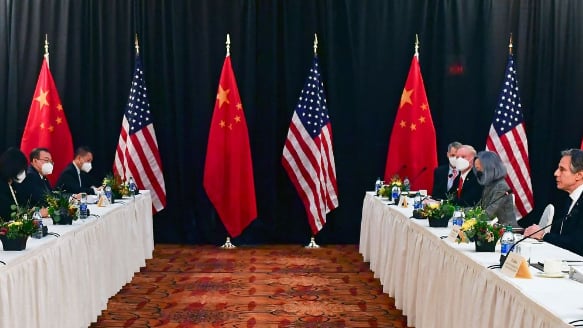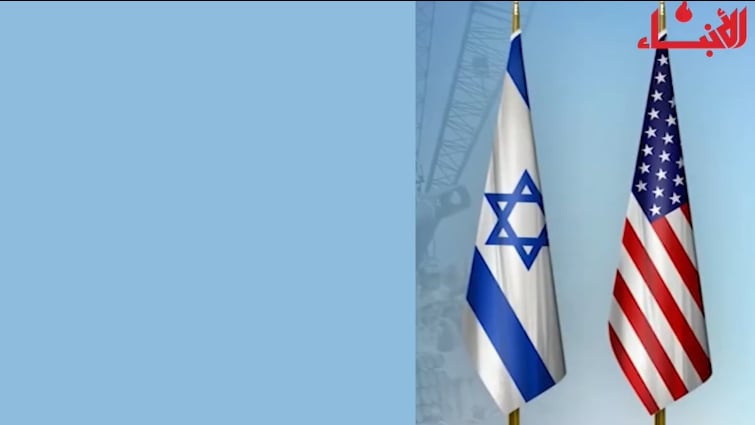By Hal Brands
In 1948, President Harry Truman’s diplomats approached representatives of Joseph Stalin with an offer to discuss the many issues dividing the U.S. and the Soviet Union. The Soviet dictator responded with a simple “ha ha,” and 40 years of Cold War ensued.
That episode seemed newly resonant earlier this month, when a meeting between American and Chinese officials in Alaska turned into a televised airing of grievances. This tussle in the tundra signaled that there will be no “reset” between Washington and Beijing; a period of high-tempo competition is upon us. But Cold War history shows that diplomacy can still play a critical role, if U.S. officials view negotiation as a tool of competition rather than a replacement for it.
Even after Stalin’s rebuff, diplomacy was a fixture of the Cold War. Every U.S. president met his Soviet counterpart for at least one summit. The superpowers negotiated arms-control treaties, neutralization of frontline states, and even cooperation on nuclear nonproliferation and smallpox eradication. Informal discussions helped end the Korean War, de-escalate crises, and keep tensions under control. During the Cold War endgame, Ronald Reagan and George H.W. Bush engaged Mikhail Gorbachev in sustained, remarkably productive diplomacy.
This history of negotiation amid competition offers several relevant lessons.
First, diplomacy is often most difficult when it stands to be most useful. In theory, the best time to put diplomatic limits on an accelerating rivalry is at the outset, before that rivalry attains a dangerous momentum. In reality, the early phase of competition is typically a test of strength. Boundaries are pushed and advantages are sought, as rivals probe each other’s resolve and power.
The Cold War détente of the 1970s thus came only after several near-disastrous collisions — especially the Cuban missile crisis of 1962 — gave the superpowers a glimpse of the nuclear hell toward which unconstrained competition might lead. Today, the testy exchanges in Alaska, along with the quickening tempo of moves and countermoves in the Western Pacific, hint that we may once again face a period of frightening peril before rules of the road are established and tensions are mutually reduced in the Taiwan Strait or the South China Sea.
Second, diplomacy can backfire when it sends the wrong message. On separate occasions, Dwight Eisenhower and John Kennedy tried to convince Nikita Khrushchev that they were determined to avoid nuclear war and find a basis for peace. What Khrushchev heard, however, was that the West was terrified of confrontation, and that encouraged the Soviets to push harder. The result was a period of nuclear brinkmanship, which helped precipitate the most dangerous crises — in Berlin and then Cuba — of the postwar era.
The Biden team seems to understand this lesson. The point of not seeking a diplomatic reset in Alaska, and of pointedly outlining where Chinese behavior conflicts with American interests, was presumably to make sure Beijing did not misinterpret the meeting as an indication that Washington was already wavering in its commitment to competition.
Third, “peace through strength” is more than a cliché. The U.S. fared best when it first consolidated its geopolitical position and then used the resulting leverage to negotiate agreements on favorable terms. Stalin assented to the negotiations that eventually ended the Korean War only after Washington stabilized the battlefield in 1951. In the 1980s, Reagan secured the most far-reaching nuclear disarmament deal in history — the Intermediate-Range Nuclear Forces Treaty — by first deploying hundreds of those missiles to Western Europe. The key to successful negotiation was showing the other side that the alternative to agreement was something worse.
Finally, diplomacy is not an alternative to competition; it is a means of prosecuting competition more effectively.
Until Soviet power collapsed in the late 1980s, negotiation could not transcend the geopolitical and ideological differences that had sparked the Cold War. Yet diplomacy could reduce the financial costs and military dangers of rivalry. It could reassure the American public and American allies that Washington sincerely sought peace, making it more likely that they would continue supporting the investments and hardships needed to wage cold war. Diplomacy could also create badly needed pauses at moments when America was strategically exhausted.
This was the virtue of the détente policy that three presidents followed in the 1970s which featured arms control negotiations and other efforts to moderate the U.S.-Soviet rivalry. That policy never transformed the Cold War, but it did buy Washington a brief respite in the wake of its defeat in Vietnam. And its eventual failure, capped by the Soviet invasion of Afghanistan in 1979, helped persuade American and European publics to recommit to containment in the 1980s.
This history has important implications for American strategy today. Expect a period of danger in the near-term, which may — if the U.S. holds its ground against Chinese tests and provocations — eventually yield the sobriety that enables more constructive diplomacy. In the interim, it won’t pay to chase resets or grand bargains; better to focus on narrow but important areas, such as climate change, where transactional cooperation may be possible. By fortifying alliances and investing in the tools of geoeconomic and technological competition, the U.S. can create positions of strength that can pay diplomatic dividends in the future.
Most important, diplomacy should be considered a competitive tool in its own right — a way of managing critical diplomatic and political coalitions, keeping the costs and risks of rivalry manageable, and helping the U.S. stick with a fundamentally competitive strategy long enough for it to work.
The frosty exchange in Alaska need not spell the end of Sino-American diplomacy. But it is a reminder that diplomacy must be viewed as ruthlessly and realistically as any other aspect of the U.S.-China rivalry.





